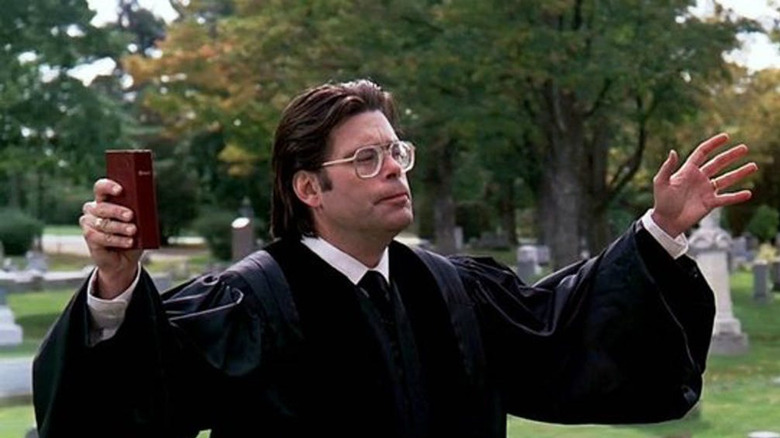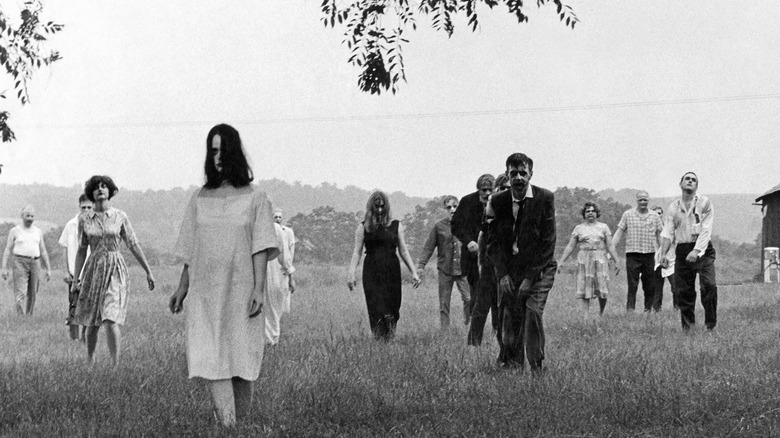The Scariest Horror Movie Ever Made, According To Stephen King
Stephen King knows horror. The bestselling author has been scaring people for more than 50 years now, with the vast majority of his books being turned into memorable horror movies. Because of this, King's thoughts on the genre often get lots of attention. He has an entire non-fiction book about the art of horror ("Danse Macabre," first published in 1981), and he often offers up his opinion on horror movies. In a new essay over at Variety, King tackles a loaded subject: the scariest movie ever made. King is smart enough to acknowledge that the concept of something being thought of as the "scariest" is relative. "My conclusion is that the 'scariest' varies according to the viewer's age," King writes. "As a kid of 16, the scariest movie was 'The Haunting' (directed by Robert Wise). As an adult, it was 'The Blair Witch Project,' with that building sense of doom and those truly horrible last 35 seconds."
King touches on "The Blair Witch Project" in "Danse Macabre," revealing, "It may be the only time in my life when I quit a horror movie in the middle because I was too scared to go on." However, "The Blair Witch Project" isn't the horror movie he's now picked as the "scariest movie ever made." Instead, King singles out "George A. Romero's low-budget masterpiece," the 1968 classic "Night of the Living Dead."
Night of the Living Dead
The zombie movie as we know would not exist without "Night of the Living Dead." Sure, Romero wasn't the first person to make a zombie film — in 1932, Dracula himself, Bela Lugosi, starred in the horror movie "White Zombie." But pretty much everything we think of when we think of a "zombie movie" comes from Romero's classic. Made for a very low budget, Romero's movie is about a group of characters trapped in a house while the undead shuffle around outside. While the ghouls are slow-moving, they're extremely deadly, and devour the flesh of anyone unlucky enough to fall into their grasp.
Romero's film was groundbreaking for many reasons, including the fact that the hero, Ben, was played by a Black actor, Duane Jones. Romero went on record saying he simply cast Jones because he was best for the part, not to make any sort of statement. But the very idea of a Black main character in this situation in 1968 was a big deal, and adds a touch of social commentary to the proceedings, particularly in the way that the boorish (and white) character Cooper (Karl Hardman) doesn't want to listen to Ben as Ben tries to take control of the situation.
"In the end, no one survives," King writes (spoiler alert, I guess?). King adds that 'Night of the Living Dead" "has lost its elemental power over the years ... but I still remember the helpless terror I felt when I first saw it."
When "Night of the Living Dead" arrived in a smattering of theaters in 1968, it become a sensation, ultimately hauling over 250 times its budget at the box office. It became a horror classic, and Romero would go on to make a series of loosely connected sequels, including the beloved "Dawn of the Dead." King is right that "Night of the Living Dead" may have lost some of its power over the years, but it's still a tightly constructed fright flick that remains highly influential to this day.

